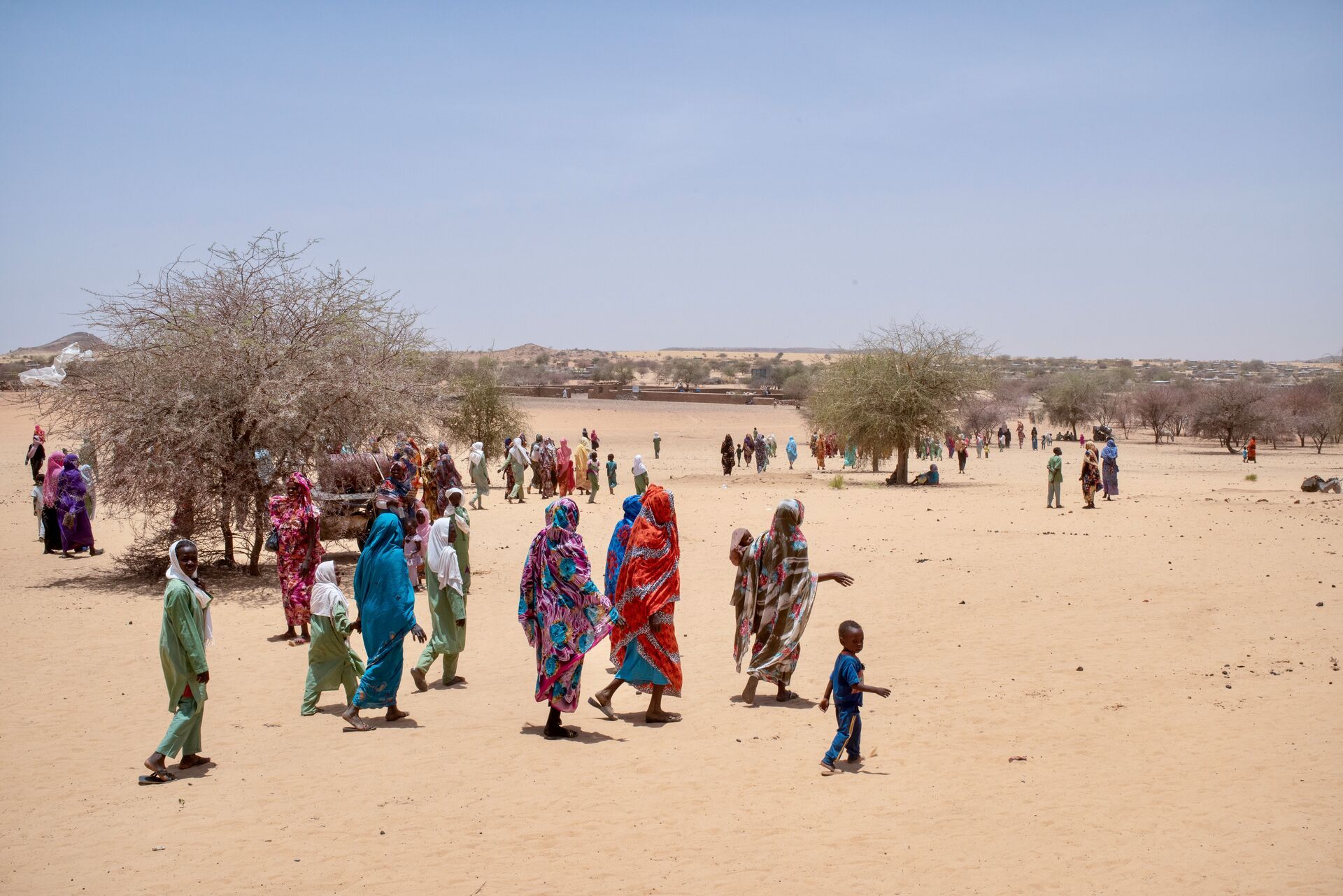
Edith Mireille Deguenon
You will seldom encounter in Benin a woman as vibrant and driven as Edith Mireille Deguenon, affectionately known as Mireille. With purposeful strides and an infectious enthusiasm, she navigates the grounds of her enterprise, embodying a spirit brimming with ambition. Her rich tapestry of experiences informs her present, while her aspirations for the future are as expansive as her vision for Oasis des Enfants, the agribusiness she established to combat child malnutrition.
Mireille’s journey towards this mission was a natural progression. After completing her education and becoming a registered nurse, she found herself repeatedly assigned to pediatrics, where she witnessed the heartbreaking realities of malnourished children—those with swollen bellies, stunted growth, and other dire consequences of inadequate nutrition. She reflects on this pivotal moment, stating, “It was during my time in pediatrics that I developed a profound desire to heal and nourish children.”
Following her marriage and relocation to Cotonou, Mireille transitioned away from nursing but continued her academic pursuits in Public Health, earning a diploma in children’s health and nutrition in 2010. She initially established a nursery for ill children, but in 2012, she took a bold step to confront malnutrition directly by creating fortified flour. This innovative blend of maize, soy, peanuts, and/or millet serves as a vital resource, enabling families to fulfill their children’s nutritional needs.
In Benin, a significant portion of the population, estimated at nine to ten percent, grapples with food insecurity, while approximately 34 percent of children under the age of five experience chronic malnutrition, a plight often rooted in the nutritional deficiencies of their mothers.
Mireille, an expert in nutrition science, envisioned her renovated flour factory in Abomey-Calavi as more than just a production site; she aspired to create Oasis des Enfants as a nurturing environment where pregnant, breastfeeding, and new mothers could engage in learning about nutrition through cooking demonstrations and informative sessions.
To realize her vision, Mireille sought funding and partnered with Hervé Kassa, a facilitator trained by the Food and Agriculture Organization of the United Nations (FAO), to utilize an innovative tool known as RuralInvest. This software, developed and overseen by FAO’s Investment Centre, assists farmers and entrepreneurs in converting agricultural data into well-structured business plans. However, RuralInvest transcends mere software; it embodies a comprehensive methodology and toolkit for training and support, fostering connections among various stakeholders within agrifood systems.
In Benin, the Agricultural Development and Market Access Support (PADAAM) project is elevating RuralInvest as a pivotal tool for enhancing agricultural investments, demonstrating remarkable success in easing access to financing from both banks and decentralized financial systems. Backed by the International Fund for Agricultural Development (IFAD), PADAAM exemplifies the synergy between FAO’s technical prowess and IFAD’s financial commitment, which amounts to USD 60.3 million of a total USD 106.41 million, in collaboration with both public and private entities. This initiative is poised to benefit more than 55,000 rural households, fostering significant large-scale investments.
Hervé stands among the elite cadre of over 300 RuralInvest specialists in Benin, who collectively have empowered more than 22,000 local farmers and agripreneurs, including Mireille, to secure financing through meticulously crafted business plans. Under Hervé’s expert mentorship, Mireille successfully presented her proposal to the PADAAM decision committee, where projects that gain approval are awarded initial grants designed to attract further investment. With her business plan now endorsed, Mireille is poised to enhance her production capabilities and introduce a new product in addition to her two current flour varieties. She plans to employ more women, particularly new mothers, thereby bolstering the local rural economy. Since the integration of RuralInvest into the PADAAM initiative in 2020, a remarkable 590 business plans have been validated, with 78 percent of these securing funding from PADAAM and national financial institutions.
“Access to credit is the core of rural development in reality because the rural world is limited, financially and economically. When there is land, labour and state structures that offer various forms of support, but there is no funding that comes to assist, it becomes complicated… So, financing really comes as a solution,” says Cyrille Hounsou, Director General of Pebco Bethesda, a microfinance institution which partners with PADAAM and offers co-financing for approved business plans.
Mireille’s aspirations for the future know no bounds, as her dreams become increasingly tangible with enhanced financial opportunities.
Her company, Oasis des Enfants, embodies the essence of Mireille’s vision:“You know when you pass through the desert, there is dust, there is heat, there is no water, there are no people, it is empty… But at some point, you can find water with shrubs. This is what we call an oasis. That’s what inspired me. I said my company will be like this water… When they come here, they will be healthy. They will have vitality, and they will have growth.”
Investment-focused Mindset
RuralInvest empowers agripreneurs by transforming their aspirations into investment-ready business strategies. For financial entities such as banks and microfinance institutions, this tool demystifies the agricultural sector, thereby minimizing perceived lending risks and enhancing access to customized financing solutions. Sikirou Alabi Oloulotan, Coordinator of ProCaR—a government initiative overseeing PADAAM and other IFAD-supported projects—highlights a significant challenge faced by producers and processors: the need for financing that is appropriately tailored. He emphasizes that while resources are indeed available, they must align with the specific requirements of agricultural activities.
In conjunction with RuralInvest, the PADAAM initiative is bridging the gap between financial institutions and the unique demands of agricultural producers and processors, which include flexible loan terms and customized repayment plans that consider the cyclical nature of farming. Given that agricultural producers often await harvests before receiving payment, they frequently struggle to provide substantial down payments. The FAO is actively collaborating with financial institutions to modify loan structures to better reflect the realities of the agricultural landscape. In essence, RuralInvest fosters a common understanding between farmers and financial institutions, as Hervé articulates.
Moreover, it is shifting the perception among investors that agriculture is an inherently risky venture. Olivier Tonato, National Cereal Agribusiness Specialist for PADAAM, notes that RuralInvest instills confidence in banks and microfinance entities, helping them to overcome the misconception that the agricultural sector is fraught with risk. Like any business, the key lies in risk mitigation. With enhanced insights into the agricultural domain and business plans that effectively translate outcomes into financing opportunities, financial institutions are increasingly inclined to support small agripreneurs, providing them with the necessary credit to flourish.
“Producers today are able to purchase equipment that allow their company to achieve a certain performance because RuralInvest, allows visibility of investments over five, ten, 20 years or more… So today, we easily make a correlation between investments and results, which allows us to easily assess the performance of the company,” describes Tonato.
The Fundamentals
In addition to securing financing, Mireille faces a fundamental challenge that is crucial to her growth: the availability of raw materials. In the realm of agriculture, these essentials are not guaranteed, as production is significantly affected by external factors such as climate variations, rainfall patterns, pest infestations, diseases, and fluctuations in the global market. These elements can not only impact the volume of produce but also influence pricing, presenting a considerable hurdle for small agripreneurs. Mireille expresses her concerns, stating, “The price [of corn kernels] changes periodically and this year, it is terrible. Corn has become very expensive”. Mireille asserts, “We must negotiate with the producers to save some of their stock and sell it to us bit by bit when the price is stable.”
RuralInvest plays a pivotal role in structuring and formalizing the business relationships that PADAAM fosters between producers, processors, and traders. Aguemon Dossa, the Director of Cabinet at the Ministry of Agriculture, emphasizes the importance of these business connections, noting, “There is the issue of business links because when you produce and you do not sell, you will not continue to produce. So from this point of view, it is extremely interesting that PADAAM works on the development of business links to address the issues of production.” For maize, rice, and cassava producers, establishing stable business relationships is vital. Adele Gogoe, Secretary of the UCCPMA maize cooperative, points out that accessing markets was a significant obstacle until PADAAM facilitated a connection with Oasis des Enfants, allowing her cooperative to sell its maize more efficiently. Adele aspires for more matchmaking opportunities like this to enhance market access and secure financing for maize production, stating, “Producers need financial support—it’s challenging to farm without it.”
Investments for Growth
Eloi Hounkponnou’s farm, situated just outside Grand Popo in western Benin, exemplifies the power of strategic business relationships. With lush rice fields flanking one side of the road and a bustling processing factory on the opposite side, Eloi collaborates closely with local farmers to cultivate organic rice—a crop that has been a part of his life since childhood. As a young boy, he would traverse the rice fields each morning before heading to school in the afternoon. After completing high school, he sought employment at the port to support his family financially. However, it was only after a diabetes diagnosis that Eloi returned to his agricultural roots, driven by a commitment to produce chemical-free food. “I want to give what is healthy to the population,” he expresses regarding his choice to focus on organic rice. The initial phase was fraught with challenges, as Eloi recalls, “We harvested rice with difficulty, I mean with great difficulty. We husked the rice and even had to go as far as 250 kilometres from here to sort the rice.” His fortunes changed when a local agency introduced him to the PADAAM project and the FAO’s RuralInvest methodology. With the guidance of a facilitator, Eloi meticulously mapped out his production plans for the next three years, uncovering significant potential for growth. Armed with a comprehensive business strategy, PADAAM provided funding for Eloi’s venture, Viva Matekpo, enabling him to acquire vital equipment such as a sorter, calibrator, and dryer. These advancements have not only eliminated the need for lengthy trips to access machinery but have also increased their rice production from 270 tonnes to an impressive 350 tonnes.
What captivates Eloi the most is how RuralInvest has enhanced the visibility and credibility of Viva Matekpo, paving the way for new funding avenues and enabling him to secure a loan of 10 million CFA (approximately USD 17,000) from the microfinance institution CLCAM (Caisse Locale de Credit Agricole Mutuel) to facilitate further growth. “With that [RuralInvest], we can open other doors,” he says. “It is not something limited,” he expresses. “It is not something limited.”
Eloi aspires to produce 1,000 tonnes of rice and establish himself as the leading distributor of organic rice in the region. He believes that the project has set them on a promising trajectory, leaving their future in their own hands. Isaias Angue Obama, the FAO Representative in Benin, emphasizes the significance of RuralInvest in driving agricultural transformation, stating, “This type of intervention is necessary: the preparation of a business plan, preparing to ask for financial support, this aspect is very important… There is a financial independence that the actors must find.” Eloi exudes confidence in his ability to pursue further funding independently, remarking, “We see something consistent, real, and tangible.”
In the lush landscapes of Zinvié, the dedicated farmers of the Sedjlo cooperative engage in the demanding process of harvesting cassava and readying the fields for the upcoming season. Cassava, alongside maize and rice, stands as a cornerstone of food security in Benin, prized for its remarkable capacity to thrive throughout the year. The tractor obtained through their supported RuralInvest business plan significantly eases their labor, complemented by the crop tricycles that facilitate the transportation of cassava to their buyers, Alitech.
In a remarkable collaboration facilitated by PADAAM, Sedjlo and Alitech, an agricultural processing entity, have flourished together, each relying on the other for mutual growth, while RuralInvest ensures that Alitech’s business strategy aligns seamlessly with Sedjlo’s production goals. Daniel Narcisse Savi, the RuralInvest representative for Alitech, articulates their primary challenge: “Our challenge was to increase our capacity to consume more raw material from the producers.” To address this, Alitech enlisted the expertise of RuralInvest to develop a viable business plan aimed at securing funding for additional equipment, particularly dryers. This investment in equipment enables Alitech to increase its processing capabilities, expand its workforce, and purchase larger quantities of cassava from Sedjlo, who in turn can cultivate more and reap greater financial rewards for their produce. By nurturing such productive partnerships, the agricultural landscape in Benin is poised for significant growth and opportunity.
Agriculture plays a vital role in the economy of Benin, serving as the main source of employment for approximately 75 percent of the population, as reported by the Ministry of Agriculture. The majority of these individuals are small-scale farmers cultivating less than two hectares of land. Enhancing agribusinesses and increasing production and revenue are essential components of the solution to this economic landscape.
Dossa notes that rural poverty is a pressing issue, particularly in these areas, highlighting the need for agricultural practices that enable producers to thrive financially. The Food and Agriculture Organization (FAO) is collaborating with Benin’s Ministry of Agriculture to implement RuralInvest on a national scale, aiming to create a significant number of businesses that utilize this approach, thereby positively influencing the agricultural sector and improving the livelihoods of farmers and producers.
FAO Representative in Benin, Obama emphasizes the importance of sustainability, stating that the knowledge and training provided through the PADAAM project must empower stakeholders to operate independently in production, value chains, and market demand, even after the project’s conclusion.
Investing in capacity building fosters a transformative mindset and empowers individuals, which is the envisioned future for agriculture in Benin, supported by FAO’s initiatives. The FAO Investment Centre developed RuralInvest over two decades ago and introduced an enhanced, user-friendly version in 2022. Currently, RuralInvest is utilized in 15 countries, with 1,500 individuals trained in its application and over 2,000 business plans created, resulting in financing exceeding USD 60 million.
Source: Media Office at the Food and Agriculture Organization of the United Nations (FAO), Rome.
– global bihari bureau





